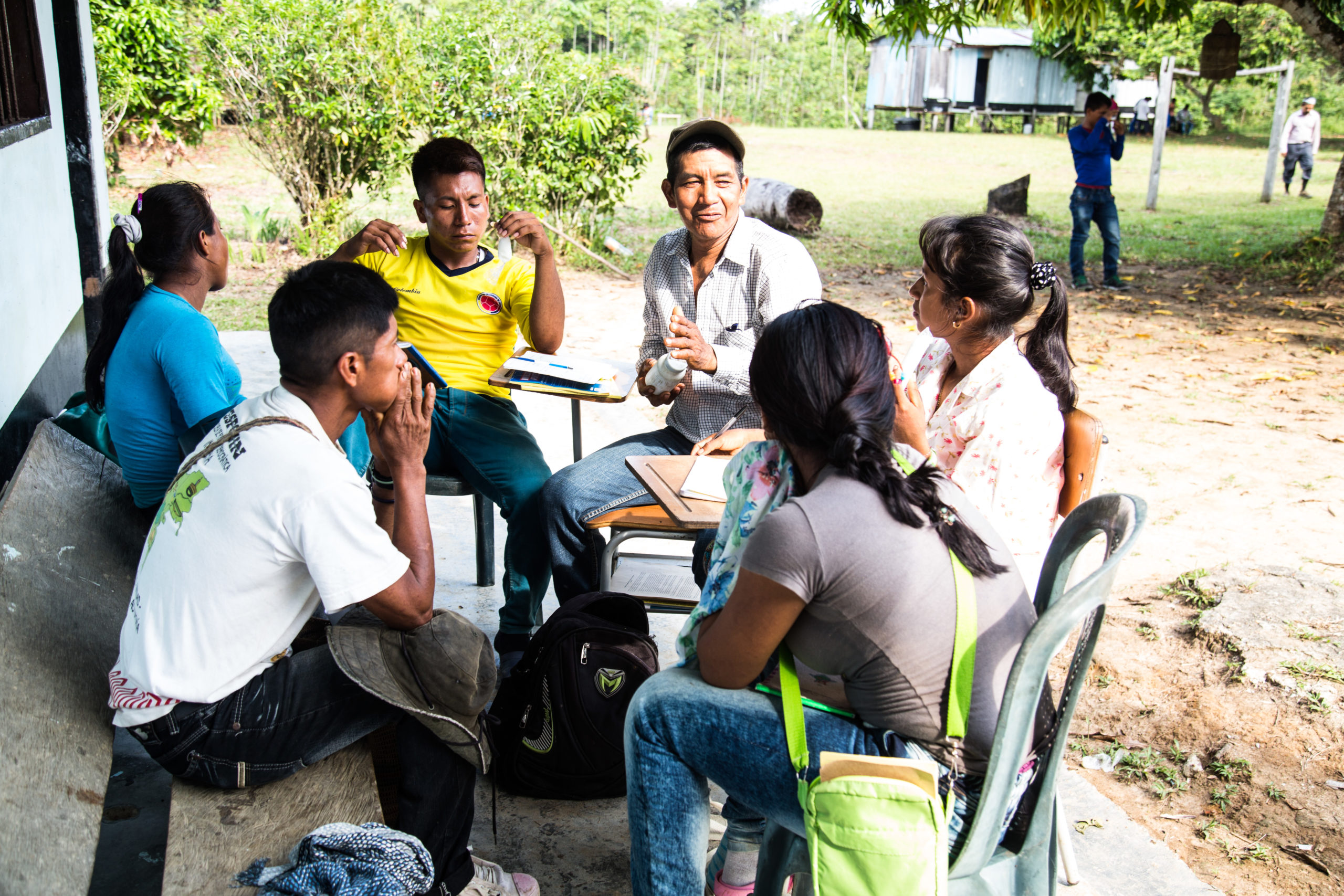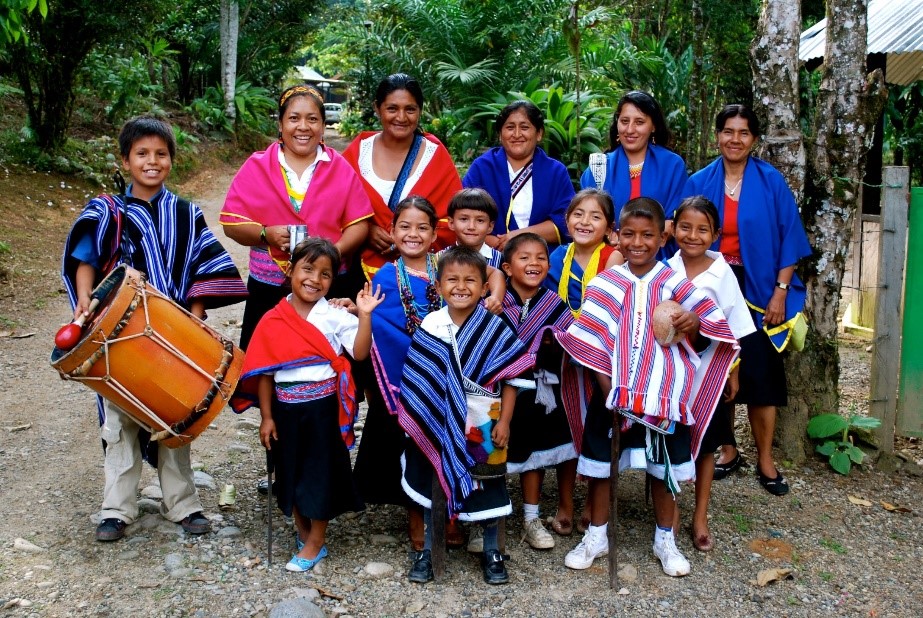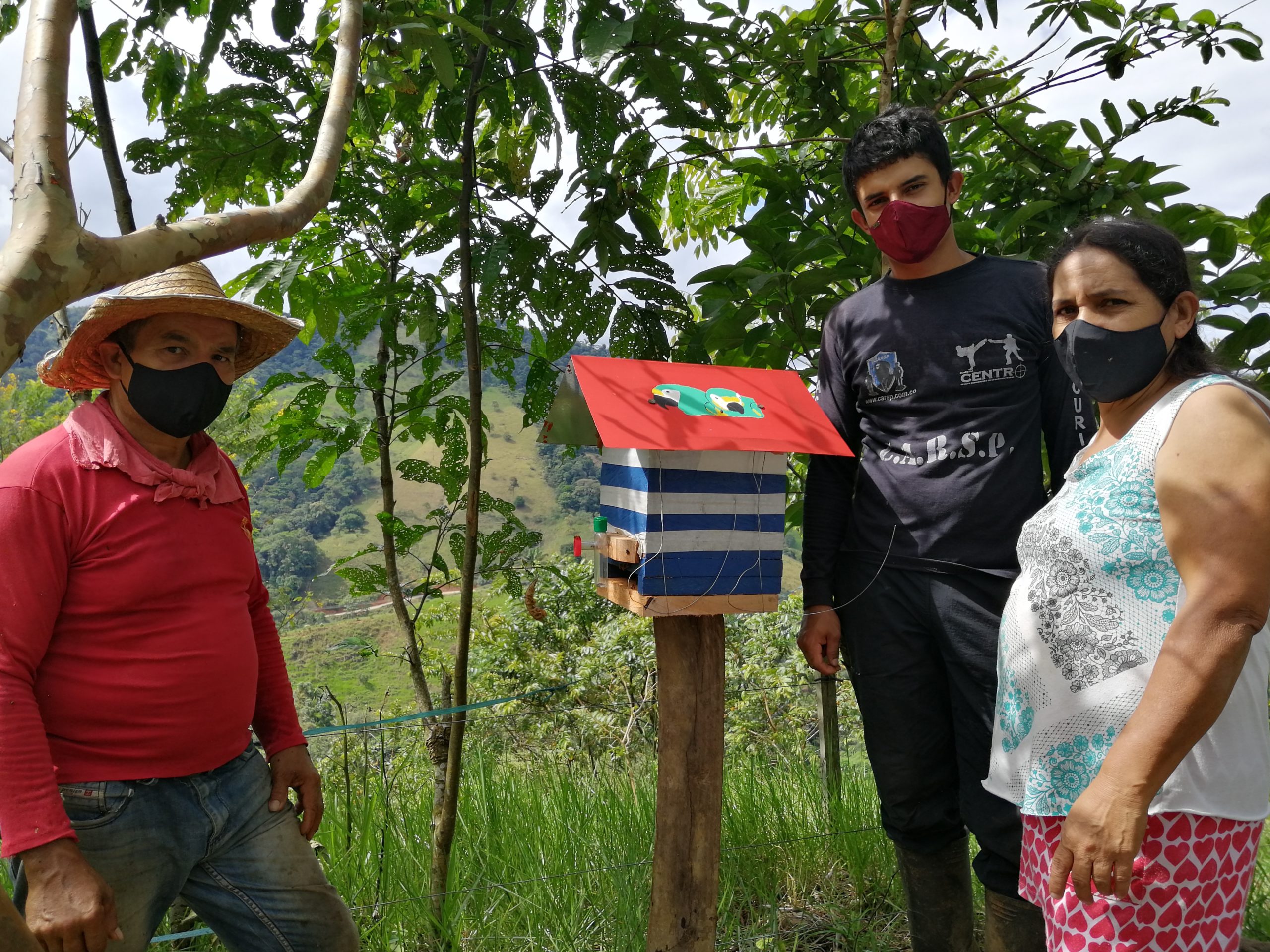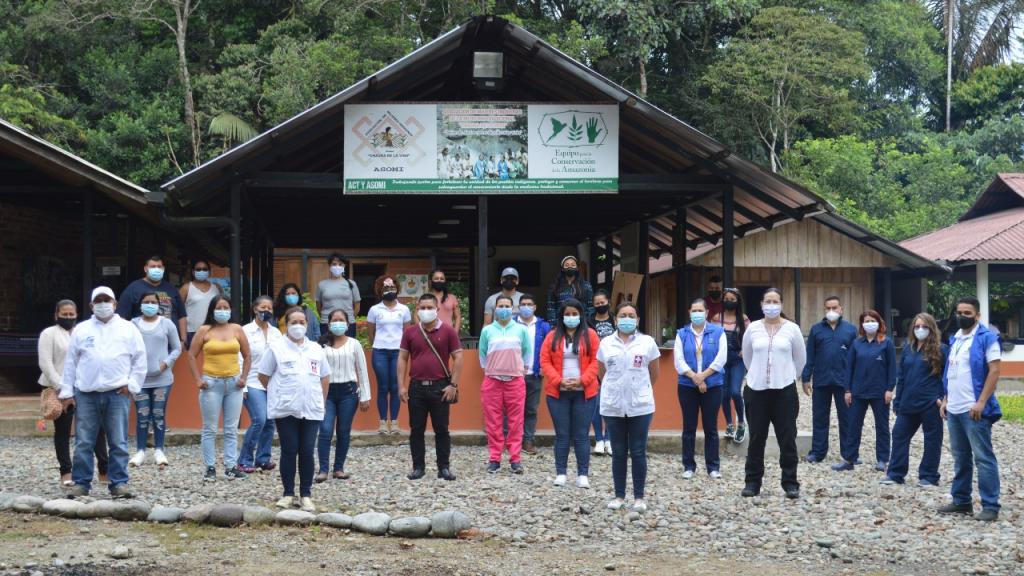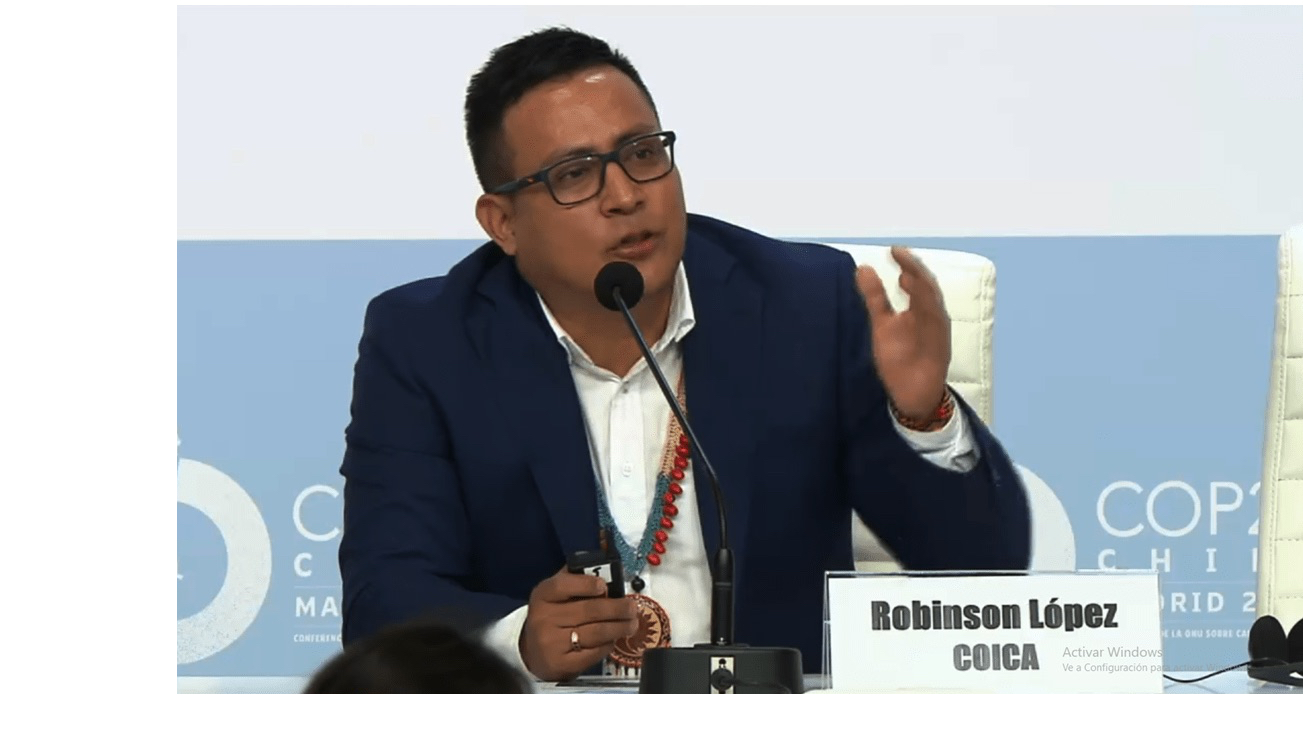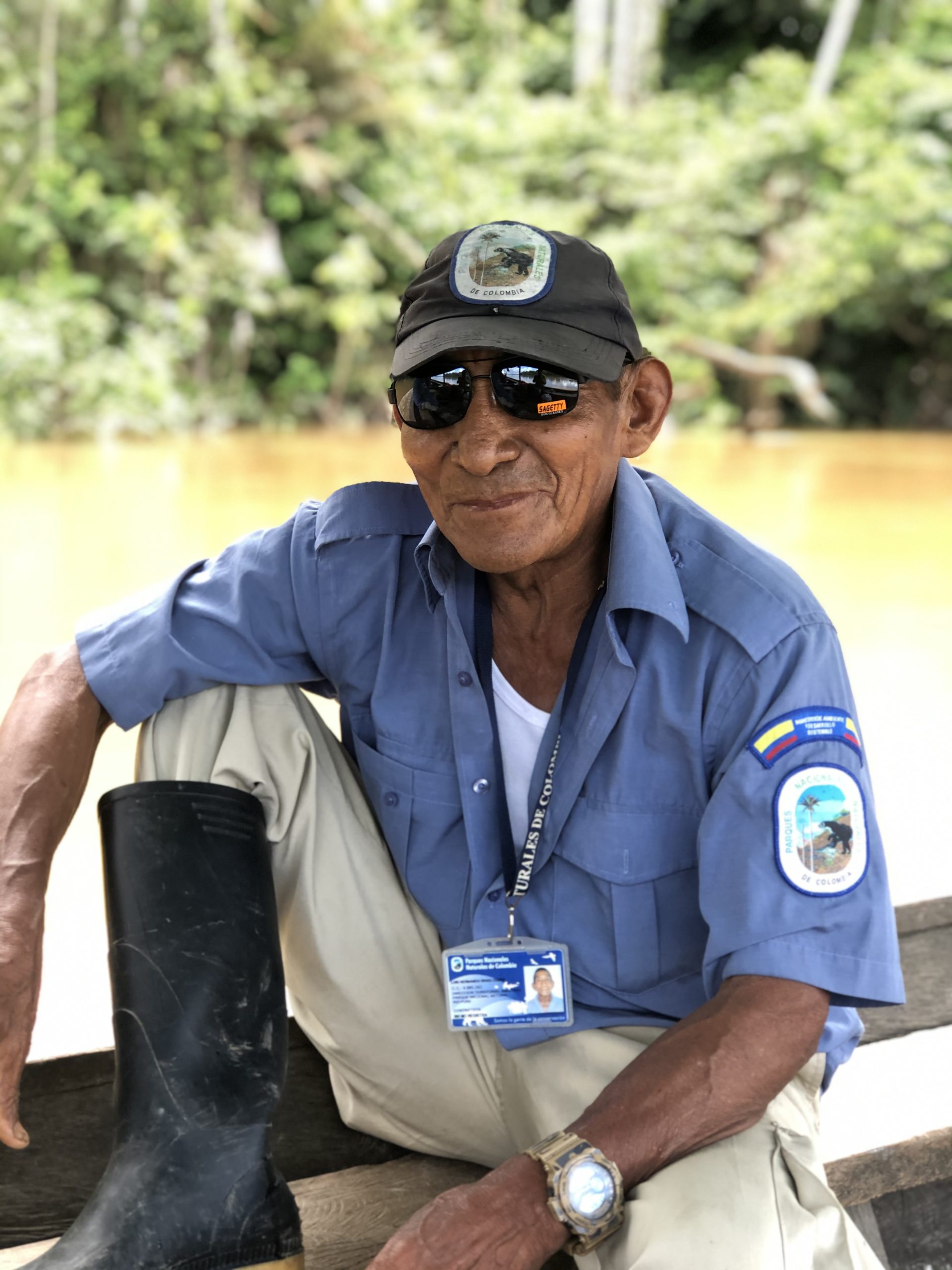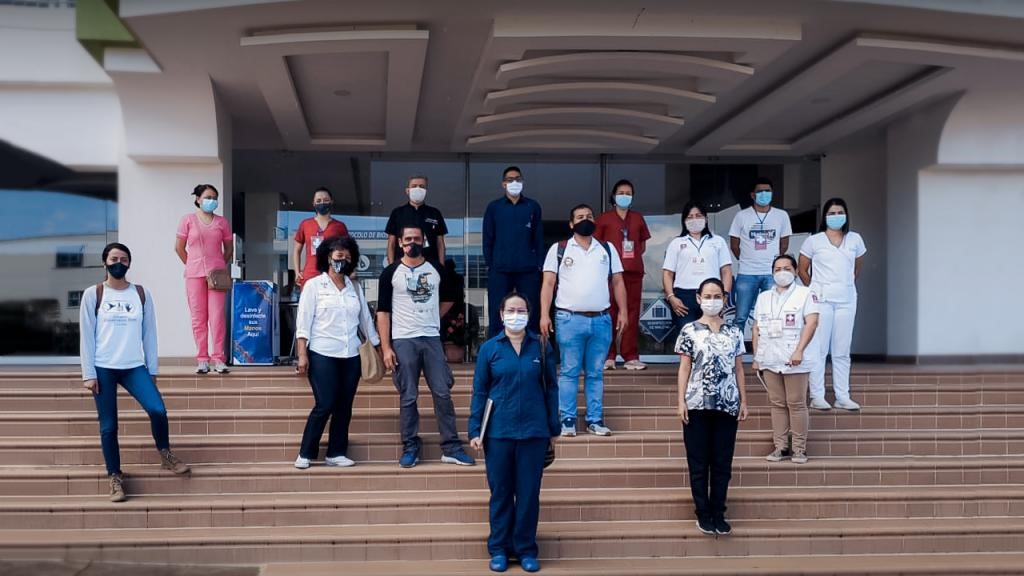Posts Tagged ‘colombia’
Por primera vez las sentencias más emblemáticas de la Corte Constitucional colombiana, en temas de defensa de las comunidades étnicas, se adaptan a lenguas indígenas
Por primera vez, se unen fuerzas para interpretar cultural e idiomáticamente las sentencias más emblemáticas de la Corte Constitucional colombiana, en temas de defensa de las comunidades étnicas. Amazon Conservation Team se alió con la Corte Constitucional para, en una primera etapa, trabajar con 26 lenguas de las 65 que tiene el país. Este esfuerzo plantea un precedente para la defensa de los derechos de los indígenas, su autodeterminación y gobernanza, además fortalece lo dictado por la Constitución Política de Colombia de 1991 y la sociedad pluralista que espera ser.
Read MoreIndigenous Women Achieve “Mamakunapa” Civil Society Nature Reserve
On December 2, 2020, a species-rich stand of Andes-Amazon rainforest stewarded by indigenous women of ASOMI achieved legal designation as a Civil Society Nature Reserve, “Mamakunapa”.
Read MoreFacing Food Insecurity on the Front Lines: Agroforestry Solutions in the Amazon Rainforest During the COVID-19 Crisis
As COVID-19 spread quickly in South America, rapidly transforming it into an epicenter of the pandemic and drastically affecting its economy, the number of people experiencing severe food insecurity in the region grew substantially. The forecasted contraction of the regional economy for 2020, estimated at 9.4%, will be the biggest drop in the region’s history,…
Read MoreBringing Voices Together: A Step in Fighting the Virus
The Universidad de los Andes health brigade traveled to Putumayo to train indigenous health aides in taking samples to detect the virus that causes Covid-19, using nasopharyngeal swabs. This is a chronicle of an intercultural encounter in a time of pandemic.
Read MoreOfficial Statement: The Passing of Robinson López Descanse
With immense pain, we mourn the passing of our friend and colleague Robinson López Descanse, Climate Change Coordinator of COICA (Coordinator of Indigenous Organizations of the Amazon Basin) and former Human Rights Coordinator of OPIAC (Organization of Indigenous Peoples of the Colombian Amazon). With great sadness, we say goodbye to Robinson. We honor the valuable and immense work…
Read MoreComunicado Oficial: fallecimiento de Robinson López Descanse
Con inmenso dolor lamentamos el fallecimiento de nuestro amigo y colega Robinson López Descanse, Coordinador de Cambio Climático de COICA (Coordinadora de las Organizaciones Indígenas de la Cuenca Amazónica) y ex coordinador de DDHH de OPIAC. Despedimos con mucha tristeza a Robinson, reconociendo el valioso e inmenso trabajo que hizo por los derechos humanos de…
Read MoreComunicado Oficial: fallecimiento de Luis Hernando “Bufeo” Rivas Cubeo
Lamentamos profundamente el fallecimiento de Luis Hernando “Bufeo” Rivas Cubeo, cofundador de la comunidad indígena de Borikada en el Resguardo Curare los Ingleses. Su generosidad con el conocimiento lo llevó a ser un puente entre el mundo de las organizaciones no gubernamentales y de gobierno. En el 2017, Luis se unió al equipo del Parque Nacional…
Read MoreComunicado Oficial: fallecimiento de José de los Santos Sauna Limaco
Lamentamos el fallecimiento en el día de hoy de nuestro compañero y amigo José de los Santos Sauna Limaco, Cabildo Gobernador del Resguardo indígena Kogui – Malayo – Arhuaco.
Honramos la vida de José de los Santos, su liderazgo y dedicación por la protección de su pueblo Kogui y la defensa de la Línea Negra, espacio sagrado de los 4 pueblos de la Sierra Nevada de Santa Marta.
Compartimos este momento triste con su familia, el pueblo kogui y los pueblos indígenas de Colombia.
Read MoreVirus Hunters in the Amazon
June 27, 2020 by Adriana Diaz – Universidad de los Andes-Colombia After almost two hours of flight in a small plane from Bogotá, Colombia, Martha Vives, Ángela Holguín and Santiago Hernández landed in the rain in the municipality of Villagarzón, Putumayo, at 11 am on Friday, June 26. For Martha, Deputy Dean of Sciences at…
Read MoreWhat We Experience When We Walk Through the Mountains
What We Experience When We Walk Through the Mountains by María Fernanda Franco, Putumayo Process, ACT-Colombia Each time I have returned from an expedition in the territories in which we work, a mixture of joy and nostalgia has suffused me, because many sensations and lesson learned remain after our time there and our exchanges with the people. The expeditions present the possibility of becoming familiar with the territory in which we work (and that we…
Read More

